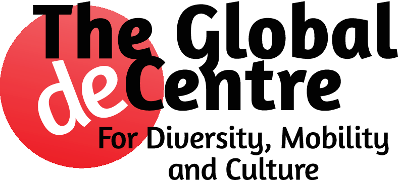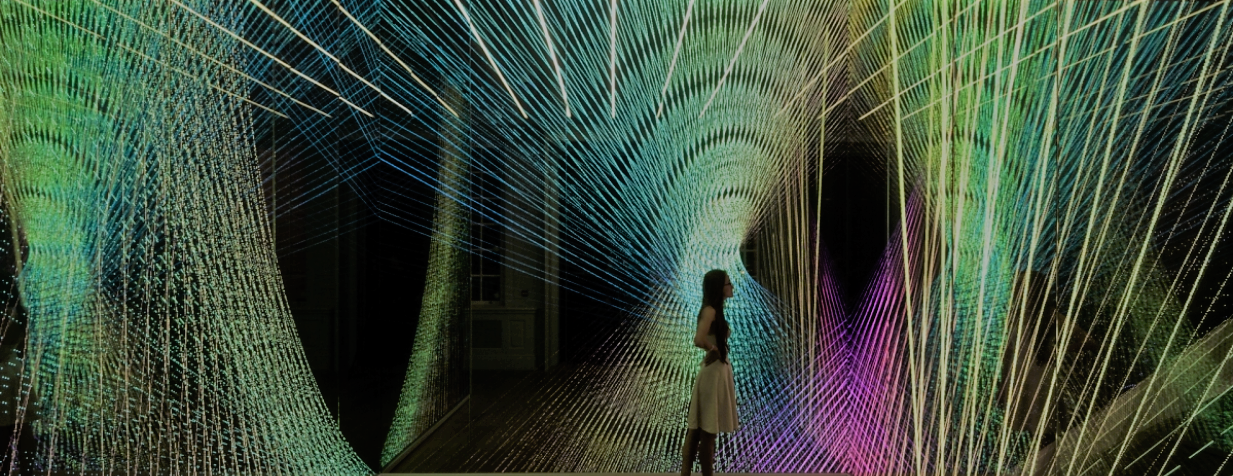Strengthening our Network from Argentina: Three New PhDs in the GDC Community
We are delighted to share that three colleagues affiliated with Argentine institutions have successfully defended their PhD theses in the last two years. Their achievements […]
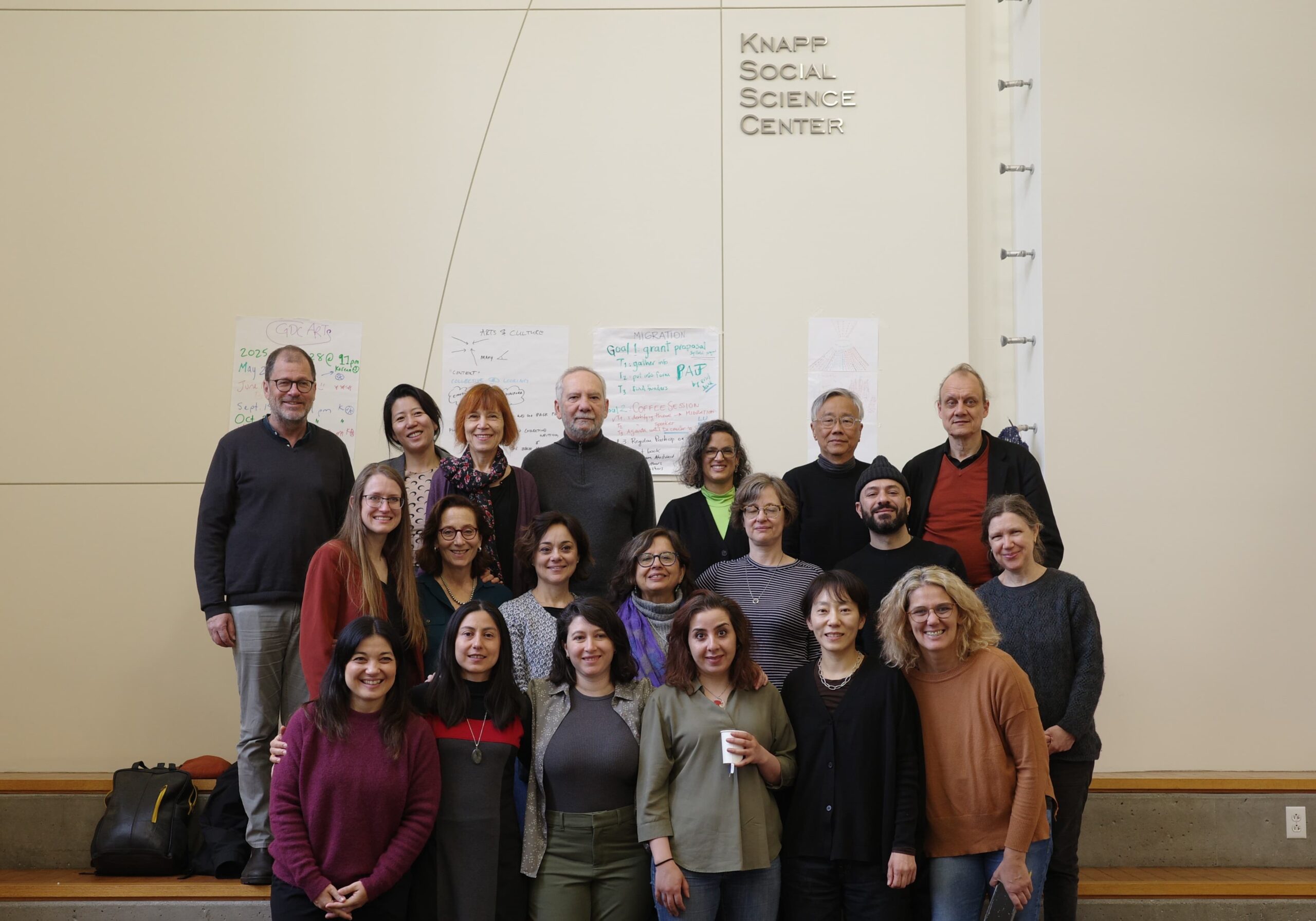
GDC Strategic Planning Meeting 2025: A Vision Come True
The GDC began in 2015 as an idea—an international network of scholars committed to producing new knowledge through diverse epistemologies and methodologies. From the start, […]

GDC Migration Group at IMISCOE 2024 and Next Steps for 2025
We did it! The GDC Migration Working Group was present at the IMISCOE 2024 workshop with two sessions. We are grateful to everyone who made […]
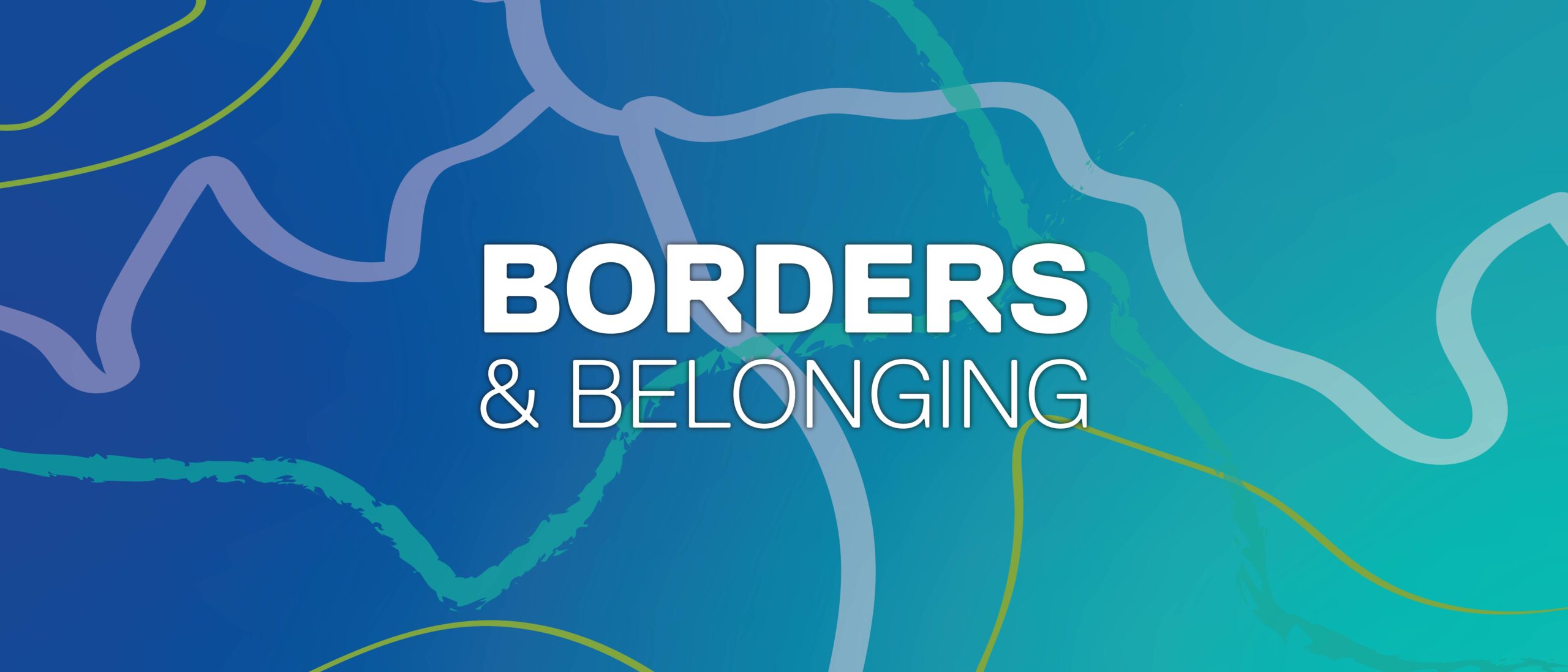
How do I decentre that? | Borders & Belonging Podcast
Decentring research means challenging Western paradigms, amplifying diverse perspectives, and rethinking power dynamics and knowledge production. This is easier said than done, especially in migration studies, where control, security, […]

Decolonizing Decoloniality series
DECOLONIZING DECOLONIALITY: A VIEW FROM DIFFERENT PARTS OF THE WORLD We hear calls from around the world to decolonize, diversify, and decenter knowledge production and […]
GDC I Conference 2023: Sharing Dreams and Building Community
In June 2023, the Global (De)Centre hosted its first conference, a two-day virtual gathering designed to inspire dialogue, spark collaborations, and collectively envision the future […]
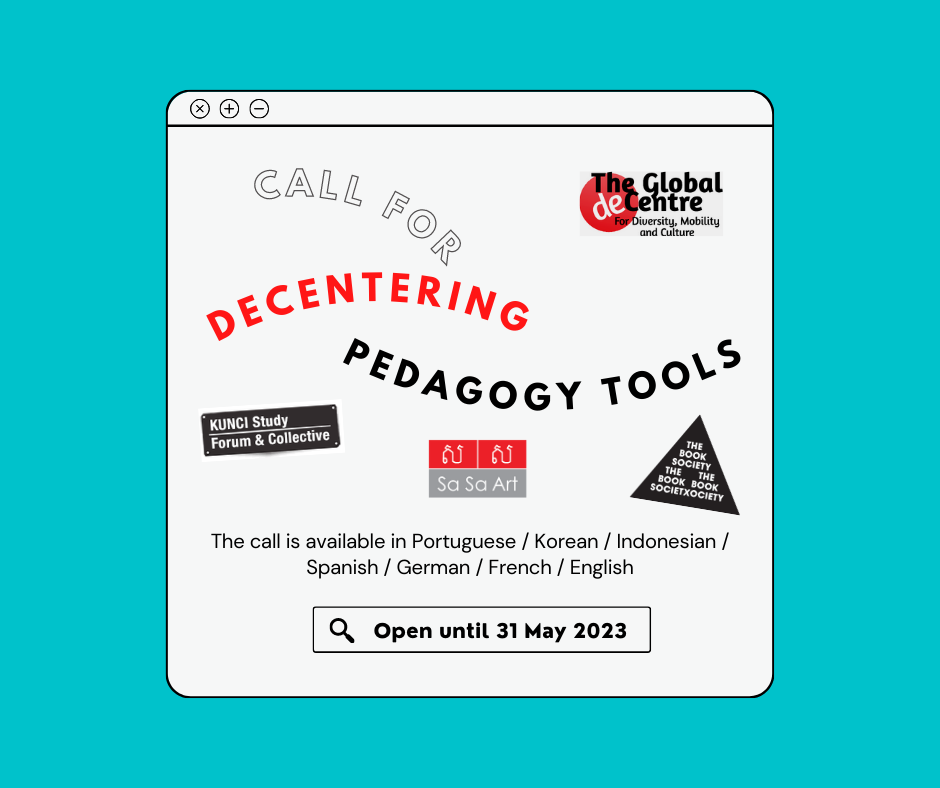
Call for Decentering Pedagogy Tools
Open and click to see full text in Portuguese / Korean / Indonesian / Spanish / German / French / English: An Arts and Pedagogy […]
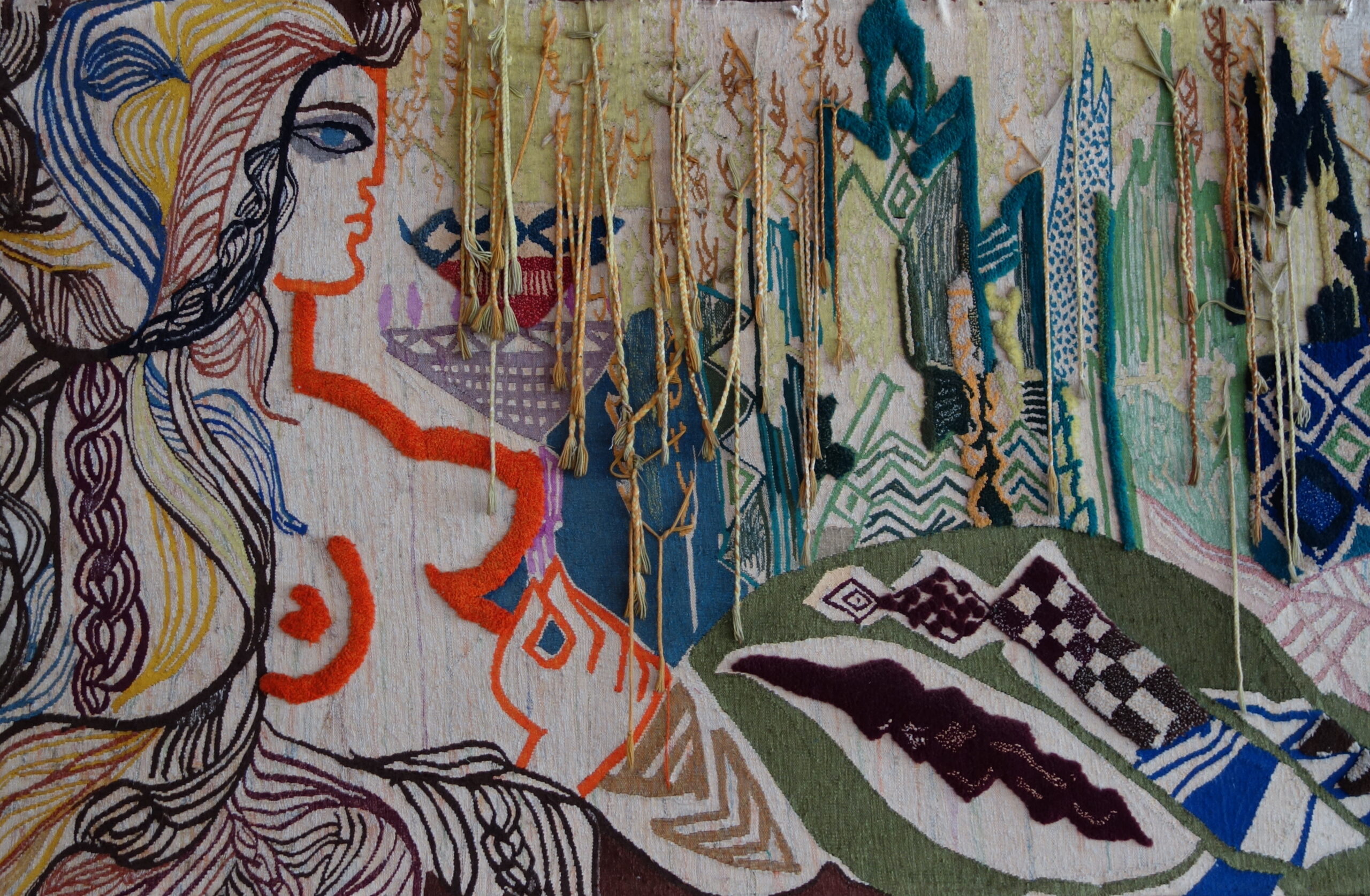
Plenary Session III: On Weaving and Deciphering the Biographies of Artists, by Jessica Gerschultz
Third plenary session as part of the Summer School Moving Biography, all welcome Monday, 6 June 2022, 2.30-4pm Sursock Museum Auditorium Plenary session III (moderated […]
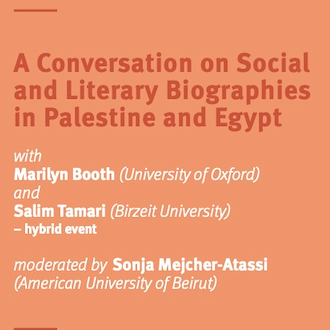
Plenary Session II: A Conversation on Social and Literary Biographies in Palestine and Egypt with Marilyn Booth and Salim Tamari
Second plenary session as part of the Summer School Moving Biography, all welcome Friday, 3 June 2022, 5-6.30pm AUB, IFI Auditorium Plenary session II (moderated […]
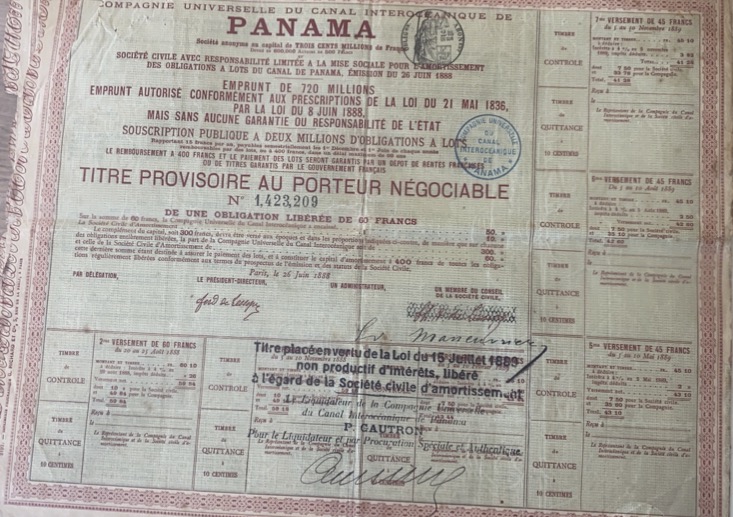
Plenary Session I: Books/Biographies in the Making, by Daniel Schönpflug and Sherene Seikaly
First plenary session as part of the Summer School Moving Biography, all welcome Thursday, 2 June 2022, 5-7.30pm Orient-Institut Beirut Plenary session I (moderated by […]
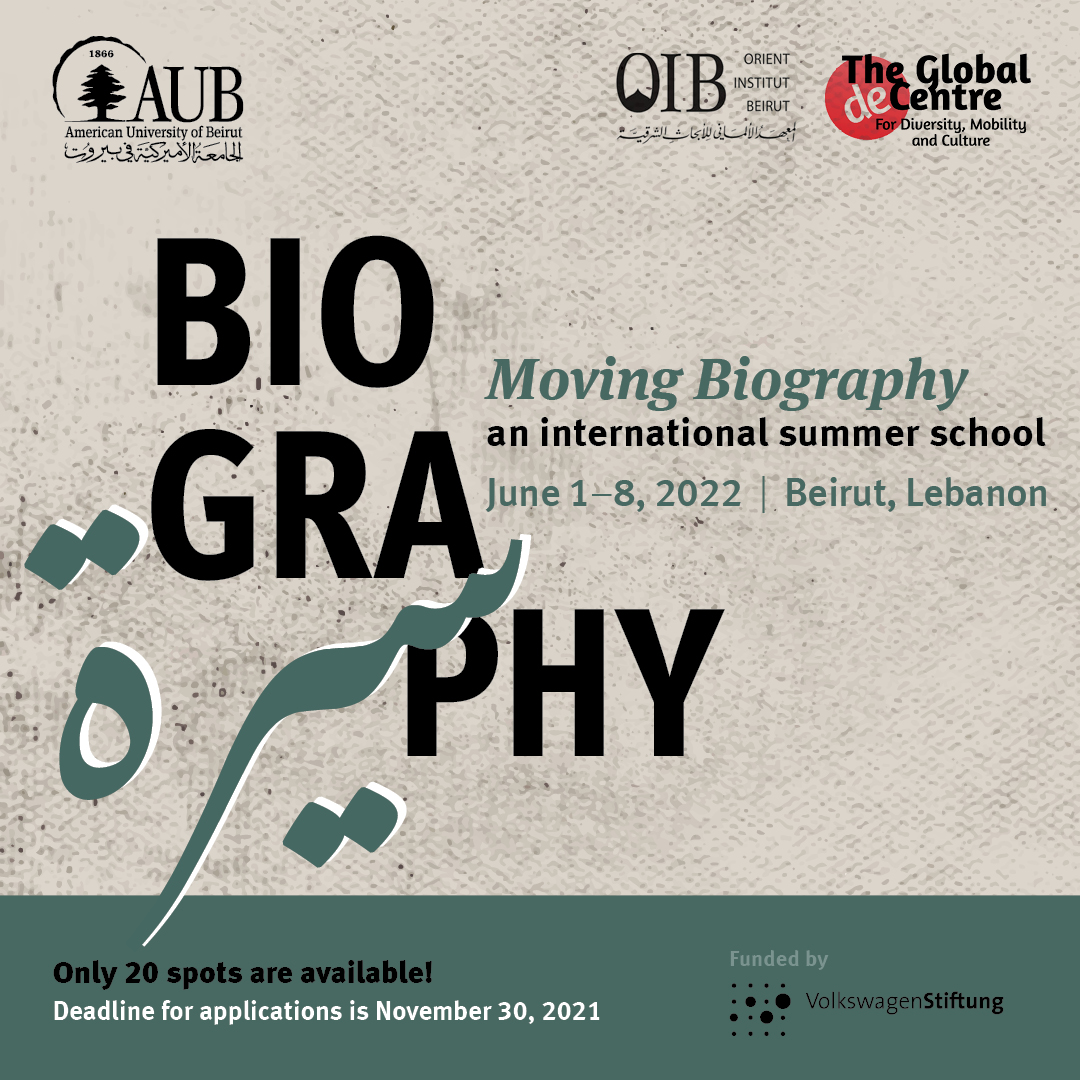
Moving Biography Summer School Program
PROGRAM DOWNLOAD LIST OF ABSTRACTS AND SHORT BIOS HERE: Moving Bio abstracts and bios per Working Group. Wednesday, 1 June 2022 Arrival of participants […]
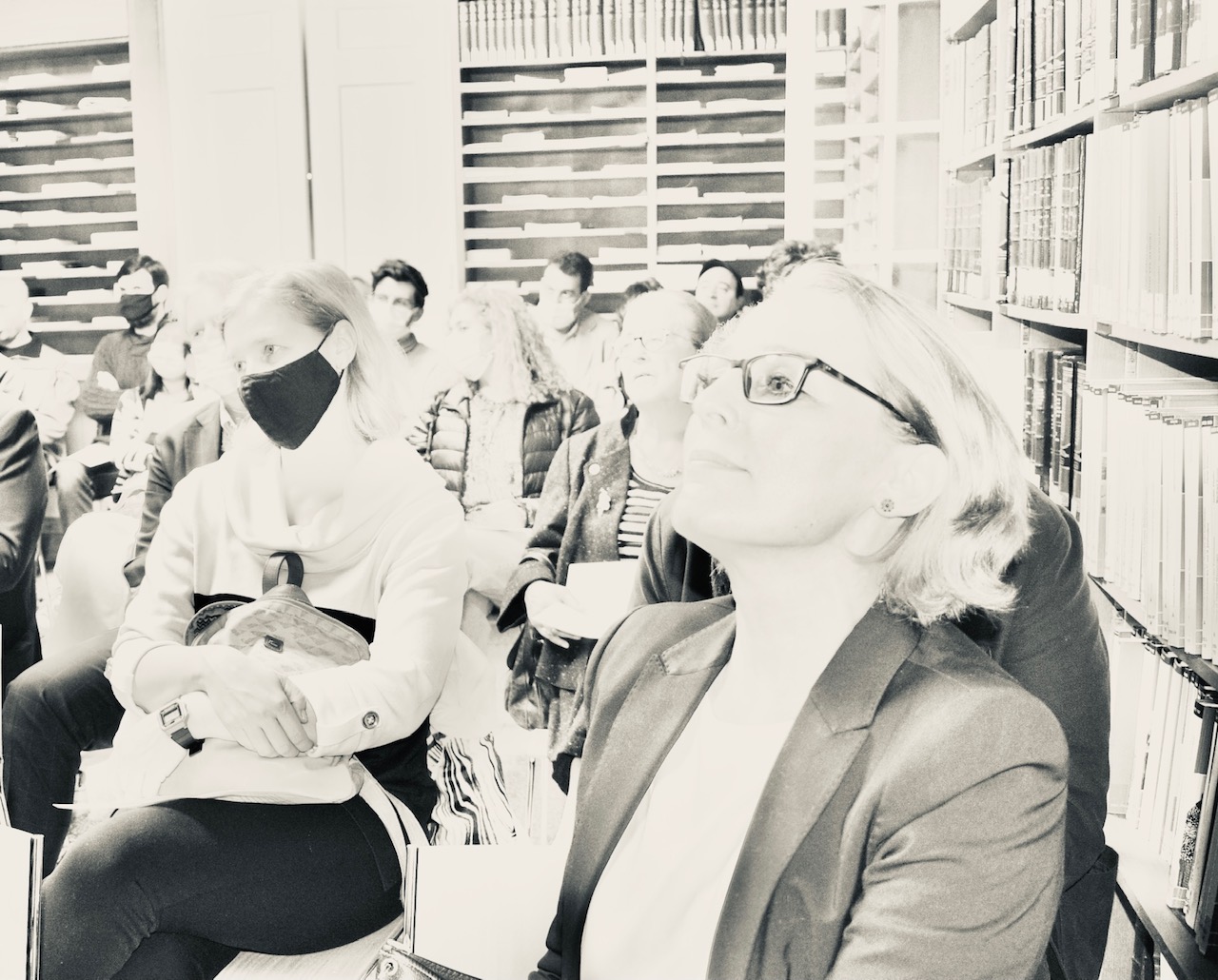
Moving Biography Participants
Working Group A Anahi Alviso-Marino / Postdoctoral Fellow, Ecole des Ponts ParisTech/University Gustave Eiffel, France / Project: Mapping Monument Stories (Find abstract and short bio here: Mapping […]
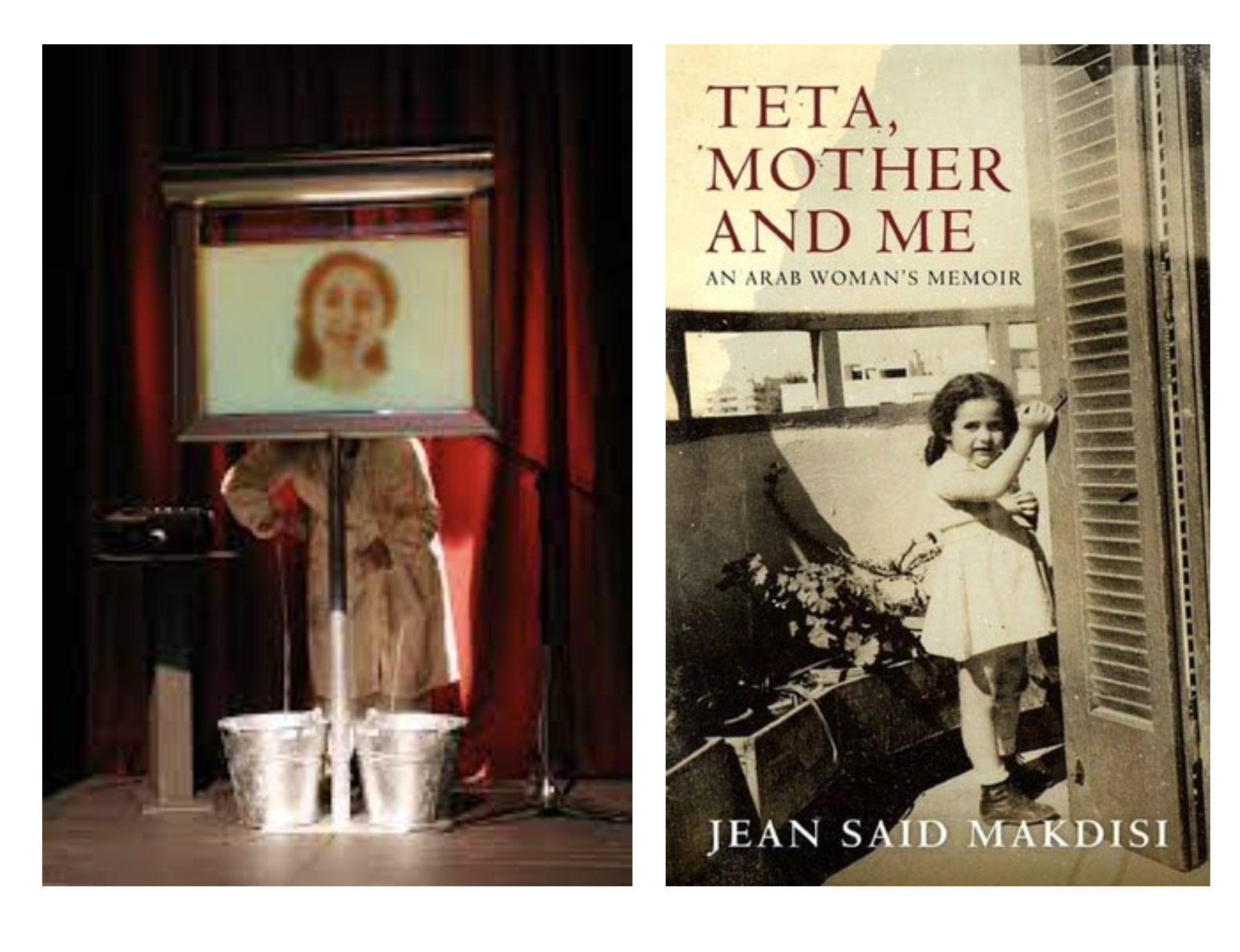
Protected: Moving Biography Readings
There is no excerpt because this is a protected post.
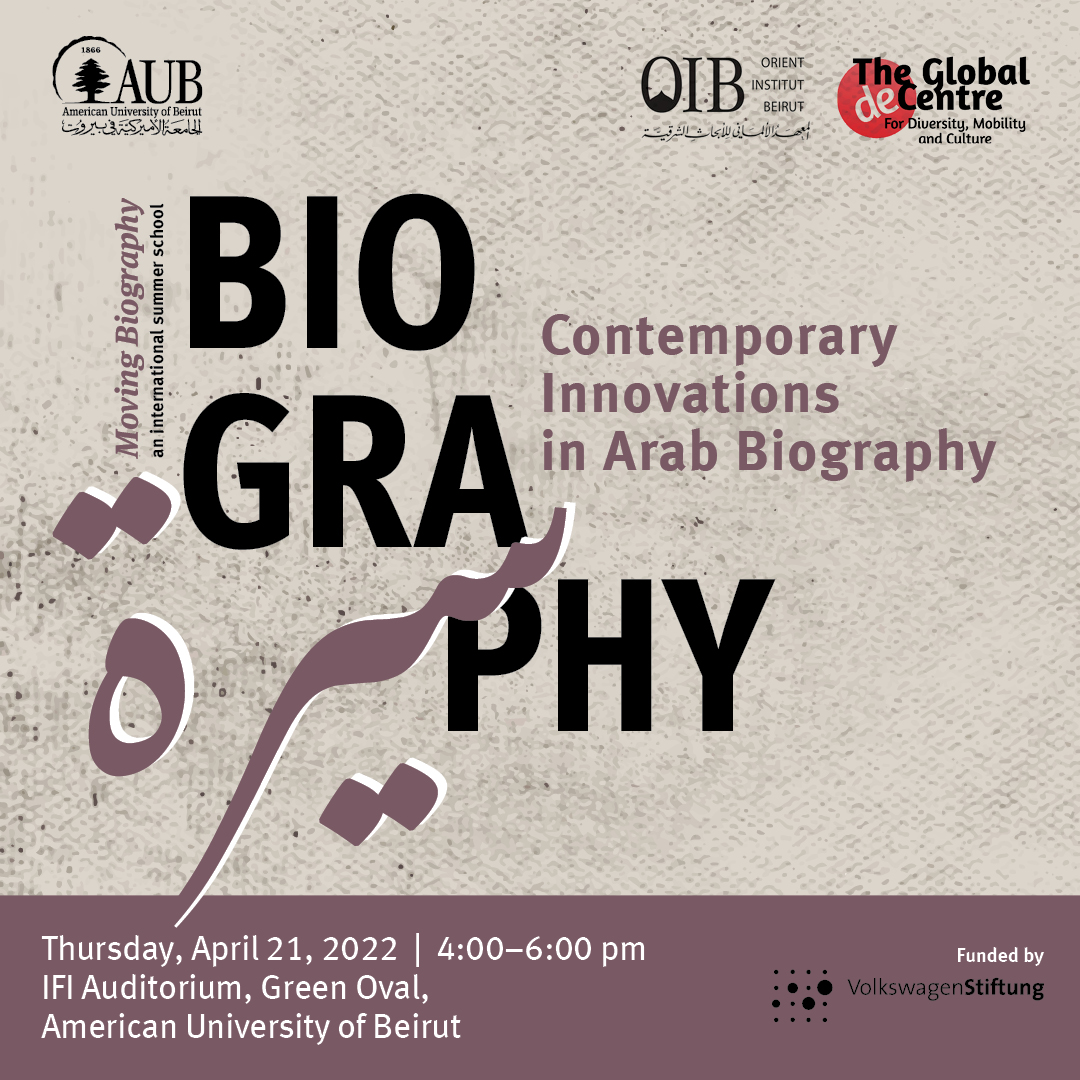
Contemporary Innovations in Arab Biography: A Conversation
Second keynote lecture in the run up to the Summer School Moving Biography Thursday, 21 April 2022, 4-6pm (UTC+3) American University of Beirut, IFI Auditorium, […]
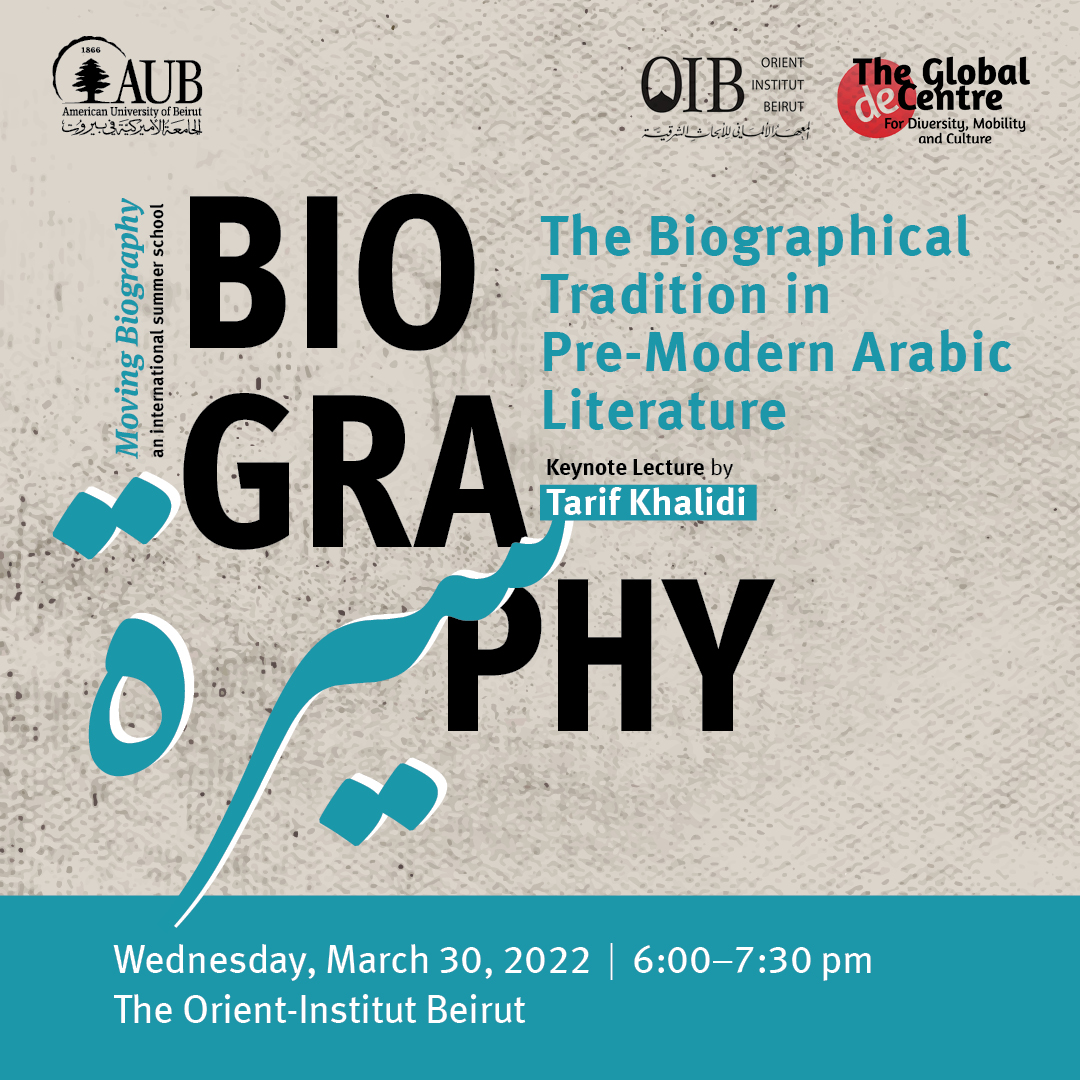
Tarif Khalidi: The Biographical Tradition in pre-Modern Arabic Literature
First keynote lecture in the run up to the Summer School Moving Biography Wednesday, 30 March 2022, 6-7.30pm (UTC+3) Orient-Institut Beirut Abstract This is an […]
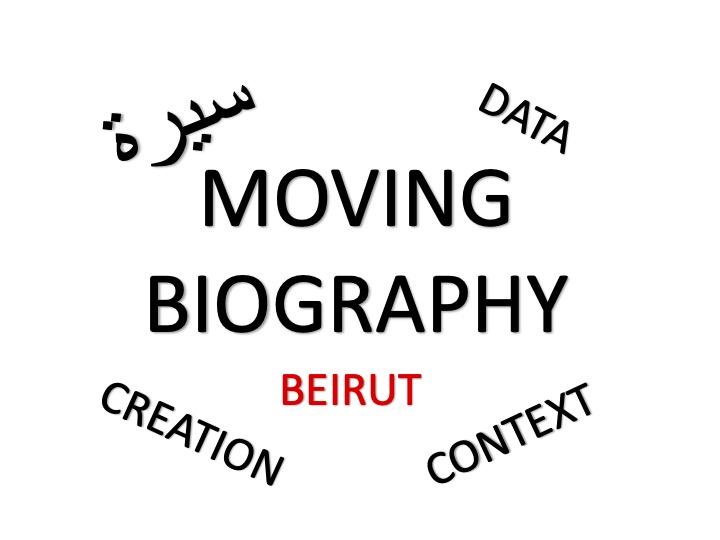
Moving Biography: An Introduction
LAWHA/Orient-Institut Beirut (OIB), the American University of Beirut (AUB), and the Global (De)Centre (GDC) are convening an international Summer School, entitled Moving Biography, that will […]
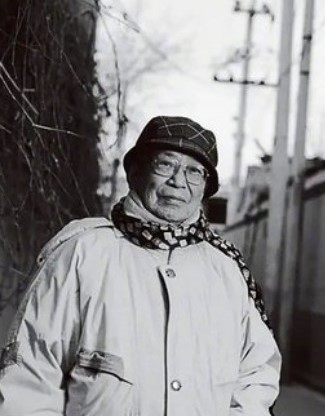
Growing up (and old) with Chinese philosopher Li Zehou
By Kwok Kian Chow: Think of how the switching between languages, cultures and epistemologies can itself be an integral part of reading and writing, and […]
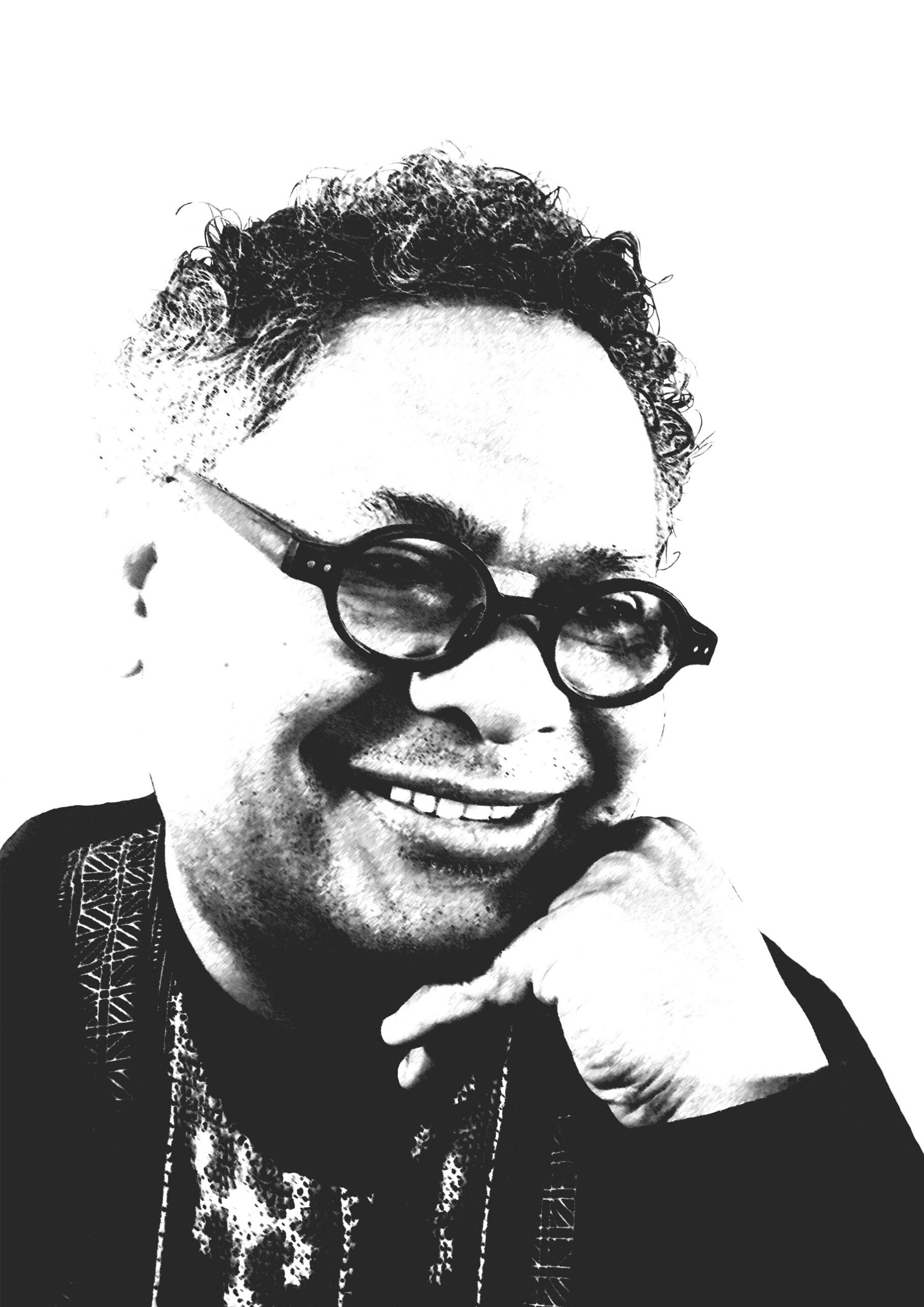
Africanising/Decolonising Ourselves: The Implications for Advancing Critical University Studies – Africa (ACUSAfrica)
André Keet’s GDC webinar envisions a conversation between the notions of Africanising and decolonising the university; and how this may look like in the South African and African context. It further locates these discussions within an African interpretation of Critical University Studies, understood as the study of universities through analyses of power, privilege and authority. Reflecting on different programmes and their associated practices that orbit the notions of Africanisation and decolonisation within universities, the talk also attempts at linking these praxes with the general decentring programme.
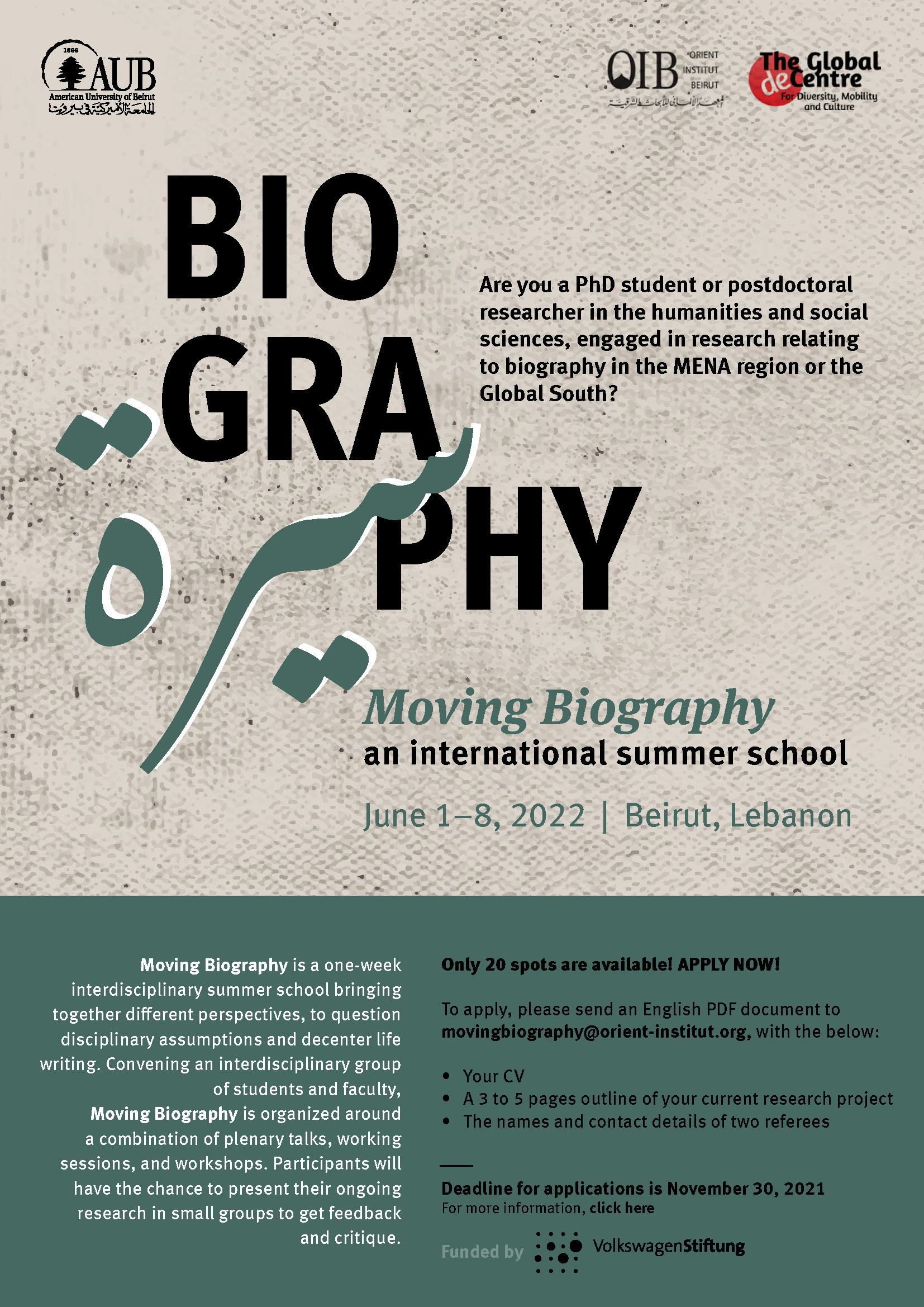
Moving Biography: International summer school June 1–8, 2022 | Beirut, Lebanon
Moving Biography is a one-week interdisciplinary summer school bringing together different perspectives, to question disciplinary assumptions and decenter life writing. Convening an interdisciplinary group of […]
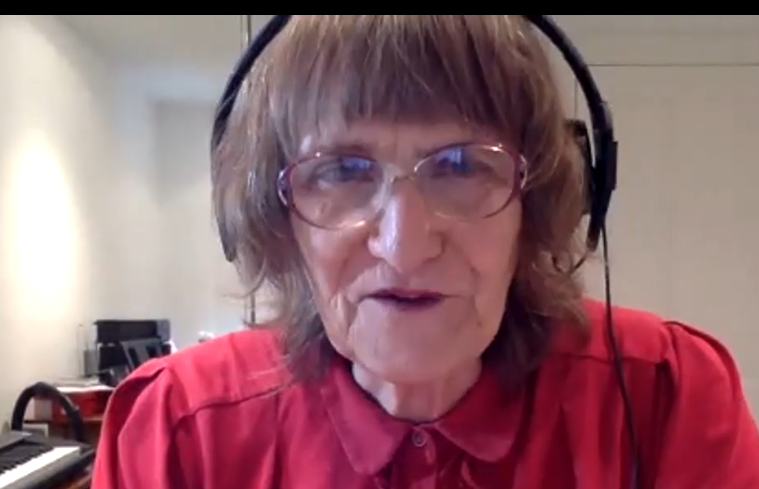
A lecture by Raewyn Connell
“Meeting at the Edge of Fear”: Decolonizing the university world.
The title comes from a poem by Saleha Obeid Ghabesh, about solidarity between women across time and space. Raewyn considers the nature of the dominant knowledge formation, several kinds of alternative knowledge formations, and issues in the process of decolonizing university work and establishing epistemic diversity. Raewyn Connell is Professor Emerita, University of Sydney, and Life Member of the National Tertiary Education Union. She is a widely-cited sociological researcher, the author of Gender & Power, Masculinities, and Southern Theory. Her recent books include The Good University and Gênero em termos reais. Her work has been translated into twenty languages. Raewyn has been active in the labour movement, the peace movement, and work for gender equality. Details at www.raewynconnell.net and Twitter @raewynconnell.
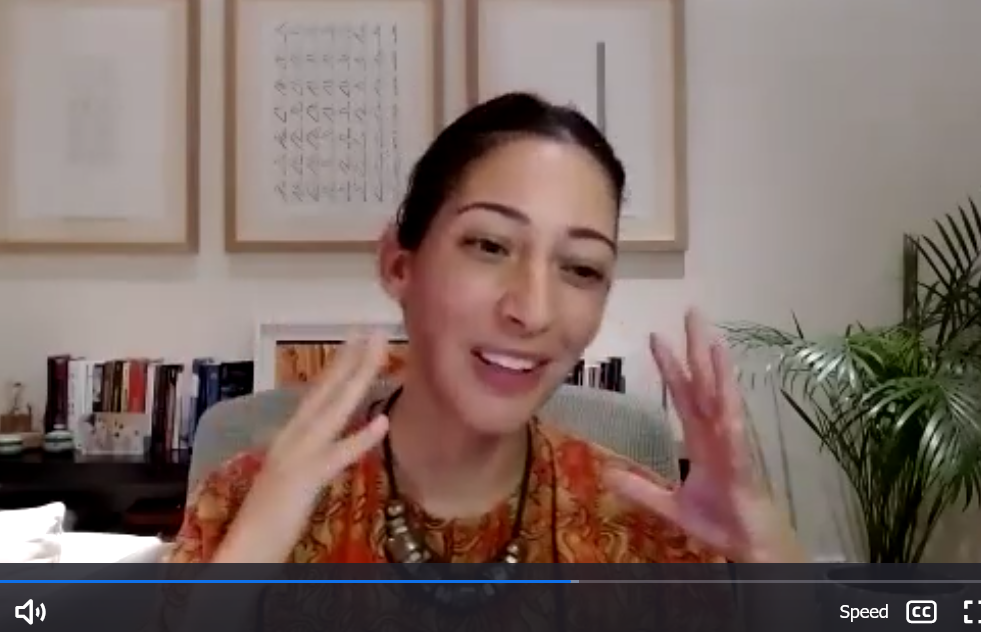
A DeCentered Conversation with May Al-Dabbagh
In this conversation Peggy Levitt talks with GDC member May Al Dabbagh about the meaning of decentering from the Gulf region and about how she developed “Self Tracing” as a research method and pedagogy tool. May Al-Dabbagh is an assistant professor at New York University Abu Dhabi and has an associated appointment as a global network assistant professor at New York University. She conducts research on gender and work in the Gulf using a combination of social psychology, public policy, and post-colonial feminist lenses. She runs Haraka: Experimental Lab for Arab Art and Social Thought as part of the the newly established Arab Center for the Study of Art.
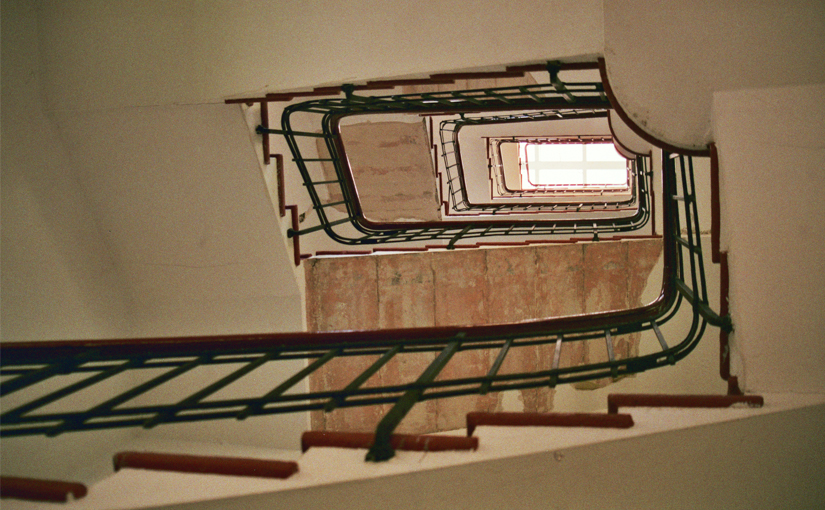
Blog: ‘Who remains?’ (Part 1): Before we even start our research…
It seems inevitable to apply the question of institutional racism to our own institutional structures within the field of migration, integration and racism research in Germany. Experiences, ideologies and biases of those conducting the research ultimately also influence the topics as well as the research perspectives. The results may also have implications for other disciplines, like history. That is why we offer an insight into our perspective. Blog co-authored by Dimitra Dermitzaki, Alina Goldbach, Nuriani Hamdan, Ali Konyali, Hanna Mai, Saboura Naqshband, and Bahar Oghalai.
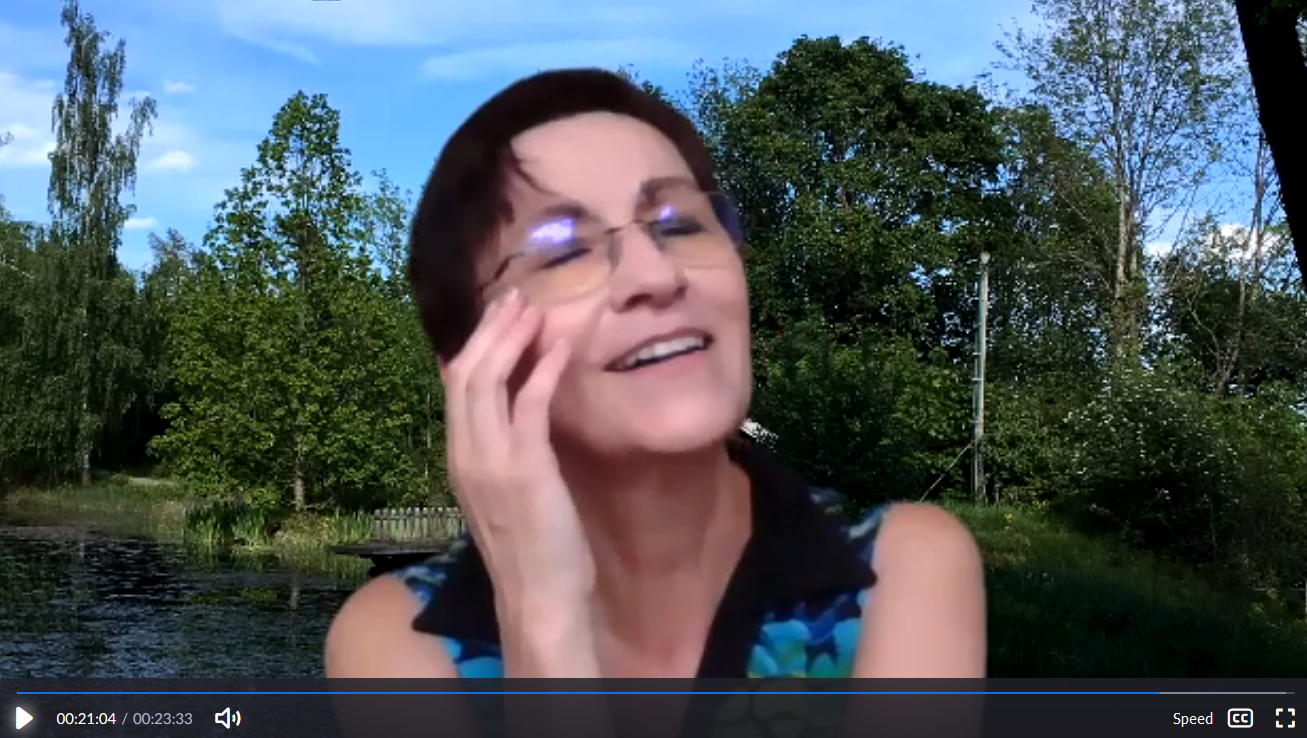
A DeCentered Conversation with Felisa Tibbetts
In this conversation with Peggy Levitt, Felisa discusses her approach to decentered pedagogy and practice and her use of political biographies in her classroom. By asking students to reflect on how their own political experiences and socialization shaped their current commitments and tools, they get a clearer, more grounded sense of how their political past drives their future activism forward. Felisa Tibbetts holds a Chair in Human Rights Education at Utrecht University, the Netherlands, and is an Instructor in the International Development Program at Teachers College at Columbia University in New York, USA

By Philip Kasinitz
Those of us lucky enough to be able to work from home now joke about what the blurring of the line between public and domestic space means for our everyday lives: attending “zoom” meetings in sweat pants (or no pants); the little glimpses of the private lives of our colleagues and bosses that spill over onto the screens. Yet, I don’t think we have fully begun to grasp the implications of the sudden withdrawal from public life has meant for our social relations and our politics.
read (pdf)

Suspension: Mobilities, Aspirations, and Socio-Political Stagnation in China
17-18 September 2018 St Hugh’s College, Oxford, UK Convened by: Biao Xiang, Professor of Social Anthropology, University of Oxford, Institute of Social and Cultural Anthropology […]

GDC Summer School in Budapest, Hungary
The double movement of nationalism and globalization demands that we look closely at how nations and migration are purposely produced by state policies, institutions, and categories aimed at creating “stable” units and unstable flows. This requires a new transnational perspective on global processes.
